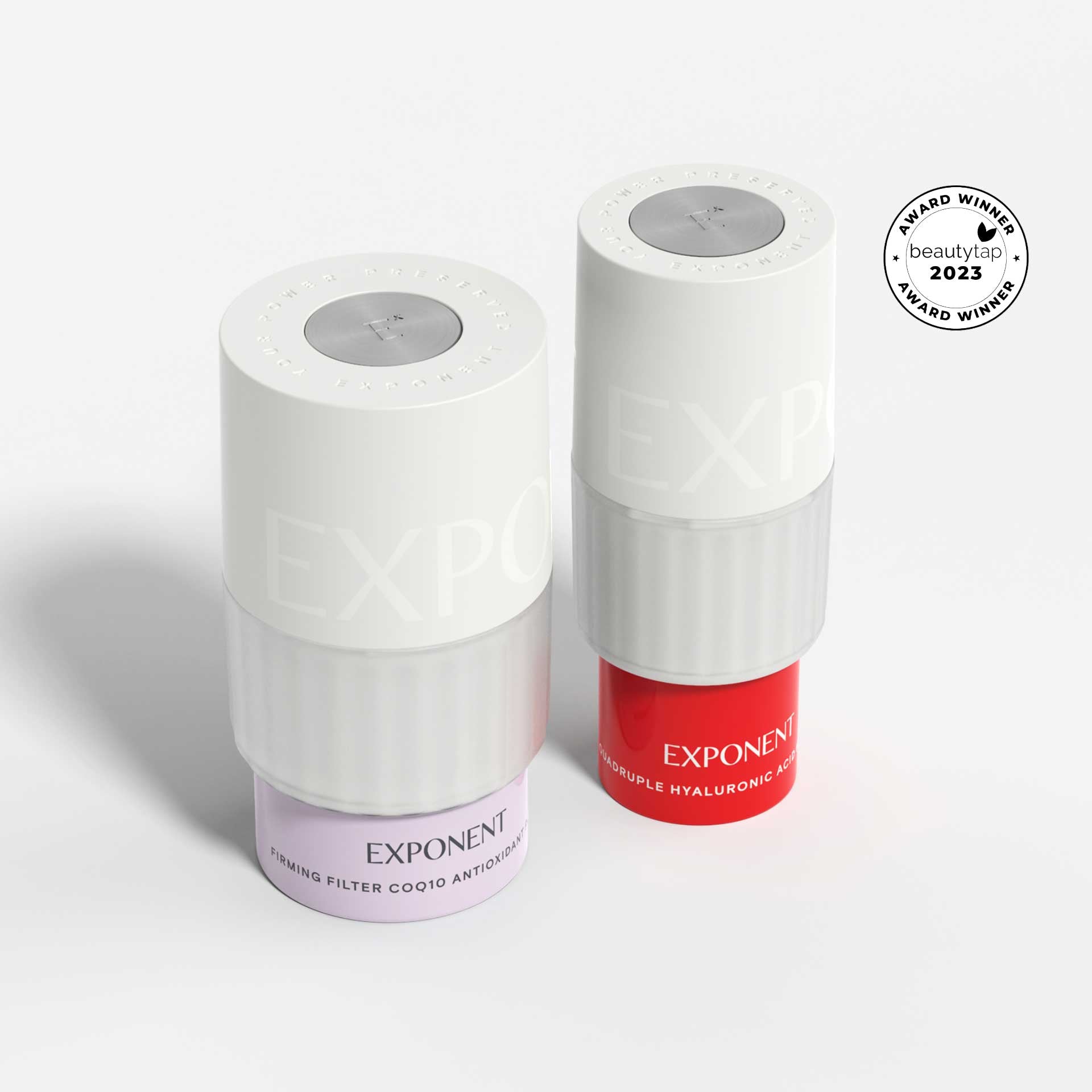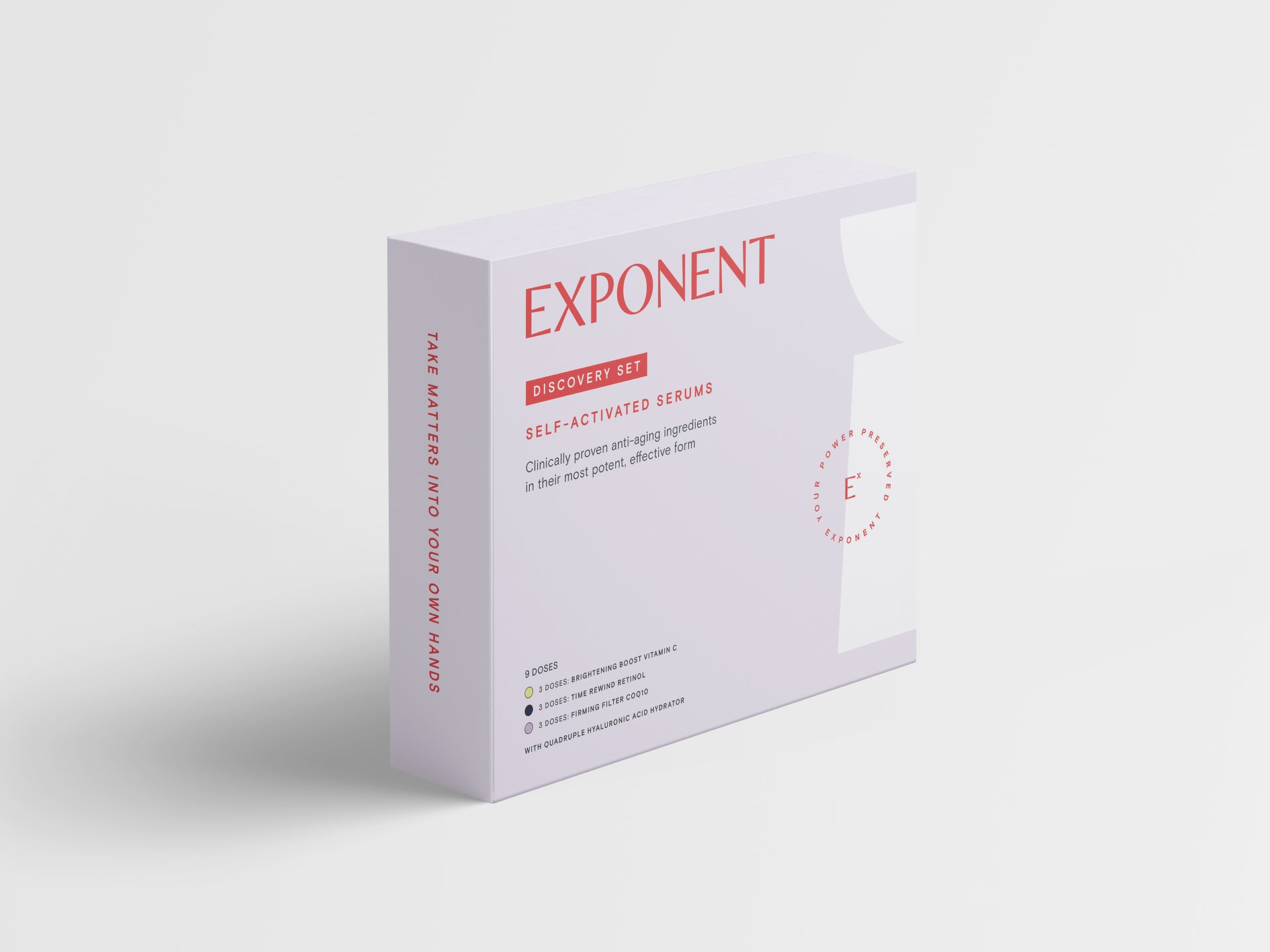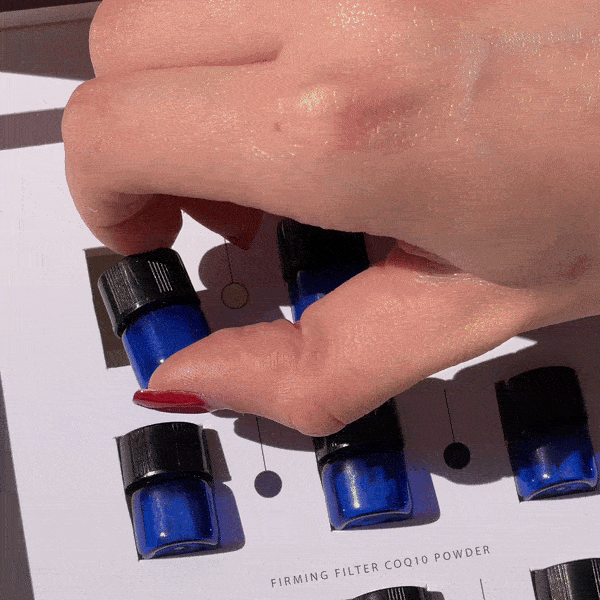Whenever you hear potent antioxidants, most likely, you think of vitamin C or E. While that's true, another ingredient takes the spotlight in skincare as a powerful antioxidant: ubiquinone, also known as coenzyme Q-10 (CoQ10). But unlike vitamins C and E, CoQ10 is naturally synthesized by the body, having a pivotal role in generating energy in skin cells, helping them grow and stay healthy.
With a lot of research to back up its anti-aging benefits, CoQ10 is one of the essential active ingredients in skincare. In this post, I delve into everything from what is CoQ10, what is CoQ10 good for, who can use it, and much more, giving you the full lowdown on this hardworking coenzyme.
What is CoQ10?
Here's the gist: coenzyme Q10 is one of the essential lipid antioxidants in the body that hinders the generation of free radicals — unstable molecules that can weaken skin cells — and modification of proteins (collagen, elastin), lipids (oils, fats), and DNA.[1]In addition to acting as an antioxidant, CoQ10 boosts cells' energy and augments the immune system. Antioxidants are mandatory for healthy skin because they offset the damaging effects of free radicals at a cellular level. Without antioxidants, UV rays, pollution, smoke, and dust weaken your skin cells, damaging and aging the skin prematurely.
But as with most compounds in the body, coenzyme Q10 production drops with age. Well, don't you worry. With diligent skincare, supplements, and certain foods, it's easy to top up your coenzyme Q10 levels.
Fatty fish (like trout, mackerel, and sardines), beef meat, soybeans, broccoli, spinach, oranges, strawberries, pistachios, and peanuts are the best food sources of CoQ10 — so next time you order groceries, add those to the cart (and check out supplements, too). CoQ10 supplements' benefits have been shown to reduce fine lines and wrinkles, firm and improve skin smoothness.[2]
What Is CoQ10 Good For? Benefits of CoQ10 for Skin
Since oxidative stress is a major enemy in a few areas, the health benefits of CoQ10 don't stop at the skin. According to the latest research, coenzyme Q10 can boost heart health, reduce migraines, enhance exercise performance, improve fertility, regulate blood sugar levels, protect the lungs, and it's also great for the brain due to its high oxygen demand.[3]
CoQ10 for skin also has a myriad of benefits and shows up in a range of skincare products. But what does CoQ10 do to be so hailed in skincare? A lot. From shielding skin against oxidative stress to smoothing wrinkles, energizing cells, and brightening, this skin-saver is popping up in more and more products for a good reason.
I'll now stop stalling. These are the CoQ10 skin benefits that'll convince you to add it to your beauty regimen (if you didn't do it yet):
- Scavenges free radicals
- Energizes skin cells
- Reduces sun damage
- Fades dark spots
- Aids in collagen and elastin production
- Helps skin hold onto moisture
- Calms the skin
CoQ10 Side Effects
CoQ10's side effects revolve more around ingesting it than its topical application — all skin types can tolerate it. This being said, you certainly want to know what are the side effects of taking CoQ10. Sometimes, loss of appetite, stomach upset, nausea can occur, but rare and mild. To stay on the safe side, check whether you're eligible for CoQ10 supplements with your doctor.
How to Use CoQ10 on Skin
This is for starters, aka those who don't know how to use CoQ10 on skin. Fortunately, CoQ10 is a versatile ingredient that works for all skin types and ages, and you can pair it with anything, from retinol, AHAs, BHAs, to vitamin C and hyaluronic acid. Oh, and you can use CoQ10 daily, morning and night. It may sound backward to use antioxidants at night, but actually, it's then when they get into your skin since they don't have to fight free radicals.
A slight drawback of CoQ10 is its large molecular weight and low water solubility. Simply put, topical CoQ10 acts more on the skin's surface, having a low skin penetration rate.[4] So, to facilitate CoQ10 skin penetration, always pick a serum. Due to their small particles, serums have more chances to enter the skin than any other skincare product. After you've cleansed and toned your skin, slather your CoQ10 serum and layer moisturizer.
P.S. don't forget about sunscreen in the morning.
As an aside, CoQ10 enjoys a lot of well worth fame in Japan, being a staple in most skincare routines that Japanese swear by. However, here in the US, CoQ10 is not as popular since American women seem not to like the aesthetics of CoQ10 as much. This happens because most formulas are watered-down, and since the color and odor of CoQ10 change when mixed with water, it makes products unpleasant to use.
When to Take CoQ10 - Morning or Night?
For the best outcomes, use your CoQ10 serum day and night. During the day, CoQ10 boosts the antioxidant defense system, and at night, it builds up for the next day for even more protection against free radical damage. That's what I call a win-win.
Now, if you want to buy CoQ10 supplements to help smoothen wrinkles and improve your overall health but don't know when to take them, we got you covered. You should take CoQ10 supplements in the morning (at night may cause insomnia) along with fatty food sources. Since CoQ10 is fat-soluble, foods like eggs, avocados, and nuts increase its absorption in the body.[5]

How Much CoQ10 Should I Take?
There's a lot of debate around how much CoQ10 a day to take. As with most supplements, it's no one-size-fits-all. It depends on things like age or if you have a CoQ10 deficiency in the first place. Nevertheless, the general belief is that the average dietary intake of coenzyme Q10 is about 3 to 6 mg per day, while in the case of CoQ10 deficiency, the dosage can go up to 3,000 mg a day.[6]
The Shelf Life of CoQ10
If you're a self-proclaimed skincare lover, you know by now that your products degrade much faster than their actual expiring date. In fact, skincare products with traditional formulas degrade by 40% within two months of using them on average. Interestingly, clean formulas degrade 33% faster than traditional ones. So, where do all the incredible benefits of your skincare go? Right, they're useless.
Unless the ingredients are instantly activated, your so-beloved skincare products most probably don't provide the benefits they claim to after two months or so of use. This happens because our daily environment — light, air, heat — speeds up ingredients degradation, making skincare products less and less effective.
Does CoQ10 Serum Expire?
Sure, CoQ10 serum expires like any other serum. Even if most brands claim their CoQ10 serum stays fresh and effective for 24 months from the manufacturing date, the latest research shows something else: your skincare products aren't as effective after opening and re-opening them.
Since CoQ10 is an antioxidant, it's easily affected by environmental conditions, leading to its rapid oxidation.[7] Light, heat, and air destroy the formula, making your product ineffective — I know, sad.
Words By: Ana Vasilescu
Footnotes
- Rajiv Saini. Coenzyme Q10: The Essential Nutrient. US National Library of Medicine National Institutes of Health. July-September 2011. Source
- Arlene Semeco. 9 Benefits of Coenzyme Q10 (CoQ10). Healthline. October 2017. Source
- Katja Zmitek. The Effect of Dietary Intake of Coenzyme Q10 on Skin Parameters and Condition. Research Gate. August 2016. Source
- Fenita Shoviantari. Coenzyme Q10 Nanostructured Lipid Carriers as an Inducer of the Skin Fibroblast Cell. De Gruyter. December 2019. Source
- Marta Arenas-Jal. Coenzyme Q10 Supplementation: Efficacy, Safety, and Formulation Challenges. IFT. February 2020. Source
- Jane Higdon, Ph.D. Coenzyme Q10. Linus Pauling Institute, Oregon State University. 2003-2021. Source
- Shuichi Setoguchi. Evaluation of Photostability and Phototoxicity of Esterified Derivatives of Ubiquinol-10. National Library of Medicine. October 2020. Source






